Getting a music production degree is a significant step toward a long, successful career in the music production industry or music business.
It requires dedication, hard work, and a passion for music and technology.
With a music production degree, you can gain the technical skills needed for audio engineering and the creative abilities essential for sound design/production.
As well as learn how to successfully navigate the ups and downs.
Plus, you’ll be able to network with industry professionals, gain hands-on experience, and enhance your career opportunities.
In today’s article, we’ll break down:
- The benefits of earning a music production degree ✓
- Choosing the right degree program ✓
- Types of music production degrees ✓
- Bachelor of Science vs. Audio Arts Bachelor ✓
- Key components of a music production degree ✓
- Music theory and its importance ✓
- Audio engineering and sound design ✓
- Top schools for a music production degree ✓
- Berklee College of Music & Full Sail University ✓
- Coursework and curriculum ✓
- Becoming a music production major ✓
- Internship opportunities ✓
- Financial aid and scholarships ✓
- Pro tips for success ✓
After reading this article, you’ll know everything about how to get a music production degree and what it entails.
While it’s not for everyone, getting a music production degree can open many doors and provide invaluable skills and opportunities.
Either way, you’ll know all about the pathways to pursuing a career in music production and the benefits of formal education in this ever-changing field.
So, let’s dive in…
Table of Contents
What is a Music Production Degree?

A music production degree is an academic program designed to teach students the music creation skills needed to survive and thrive in the industry.
These programs typically include courses in audio engineering, music theory, sound design, and music technology.
A music production degree helps students understand the intricate details of producing and recording music, preparing them for various roles such as:
- Professional music producer
- Recording engineer
- Audio technology
- Sound technician
- Live sound engineer
- Even computer science/visual media
Earning a music production degree provides a super structured path to knowledge and hands-on experience in this competitive field.
You can learn about the latest technology, techniques, and software used in music production 一 gaining invaluable skills that are key for professional success.
This education also covers essential topics like digital audio principles and complex digital audio systems for an all-inclusive learning experience.
-
Benefits of Earning a Degree in Music Production
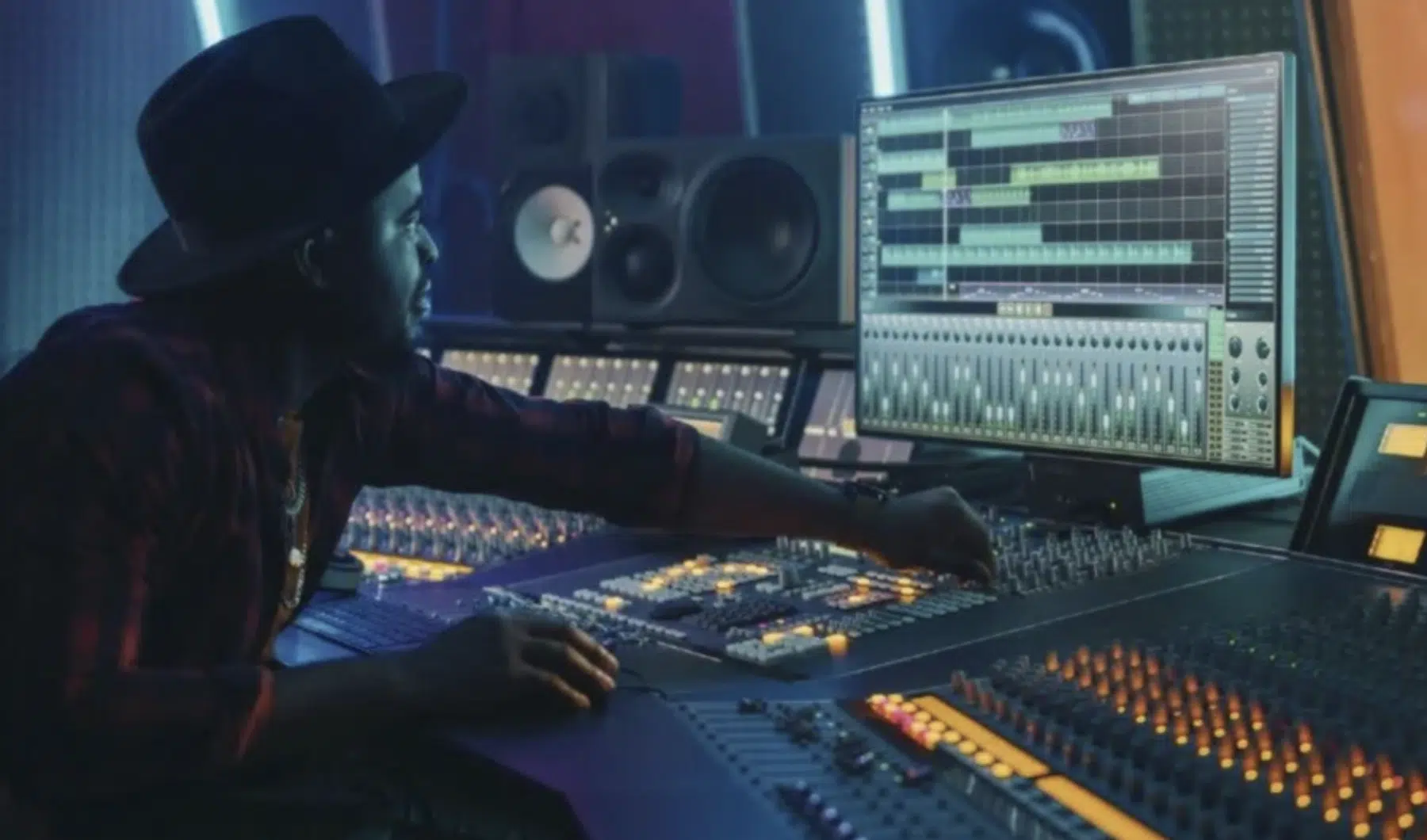
There are a lot of benefits to earning a music production degree.
Firstly, it offers access to state-of-the-art equipment and facilities, so you can get real experience with industry-standard tools you might not have access to otherwise.
This hands-on training is invaluable for mastering advanced audio production techniques and learning the foundational concepts of music production.
Secondly, a music production degree opens up some serious networking opportunities.
Students connect with peers, instructors, and industry professionals 一 building relationships that can lead to exciting job opportunities and collaborations.
Many programs also offer internship opportunities, which provide real-world experience in the music industry and enhancing employability upon graduation.
NOTE: It’s true that you don’t necessary need a degree in today’s day and age, but there are some perks that just won’t come as quickly without one.
Plus, most industry jobs still require some sort of certificate (unless you have an insanely impressive resume or connections already, of course).
Choosing the Right Degree Program: Types of Music Production Degrees

When choosing a music production degree program, it’s important to know all the types available, because each offers different level of education and specialization.
Associate degrees, bachelor’s degrees, and advanced degrees each cater to different career goals and educational needs.
An associate degree in music production provides the necessary knowledge and skills, which makes it a good starting point for those new to producing/beat-making.
A bachelor’s degree, such as a Bachelor of Science in Music Production or an Audio Arts Bachelor, offer more in-depth training.
These programs typically span four years and cover various topics 一 including music theory, audio engineering techniques, and music technology.
Students in these programs gain a thorough and comprehensive understanding of the music production process, from recording to mixing and mastering.
For those seeking advanced education, master’s degrees and other postgraduate programs offer specialized training in specific areas of music production.
They often focus on advanced audio production techniques, sound design, and research in music technology.
Choosing the right degree program depends on your career goals and the level of expertise you wish to achieve in the music production industry.
So, before diving in, make sure you consider your personal situation and motivation.
-
Pro Tip: Bachelor of Science vs. Audio Arts Bachelor
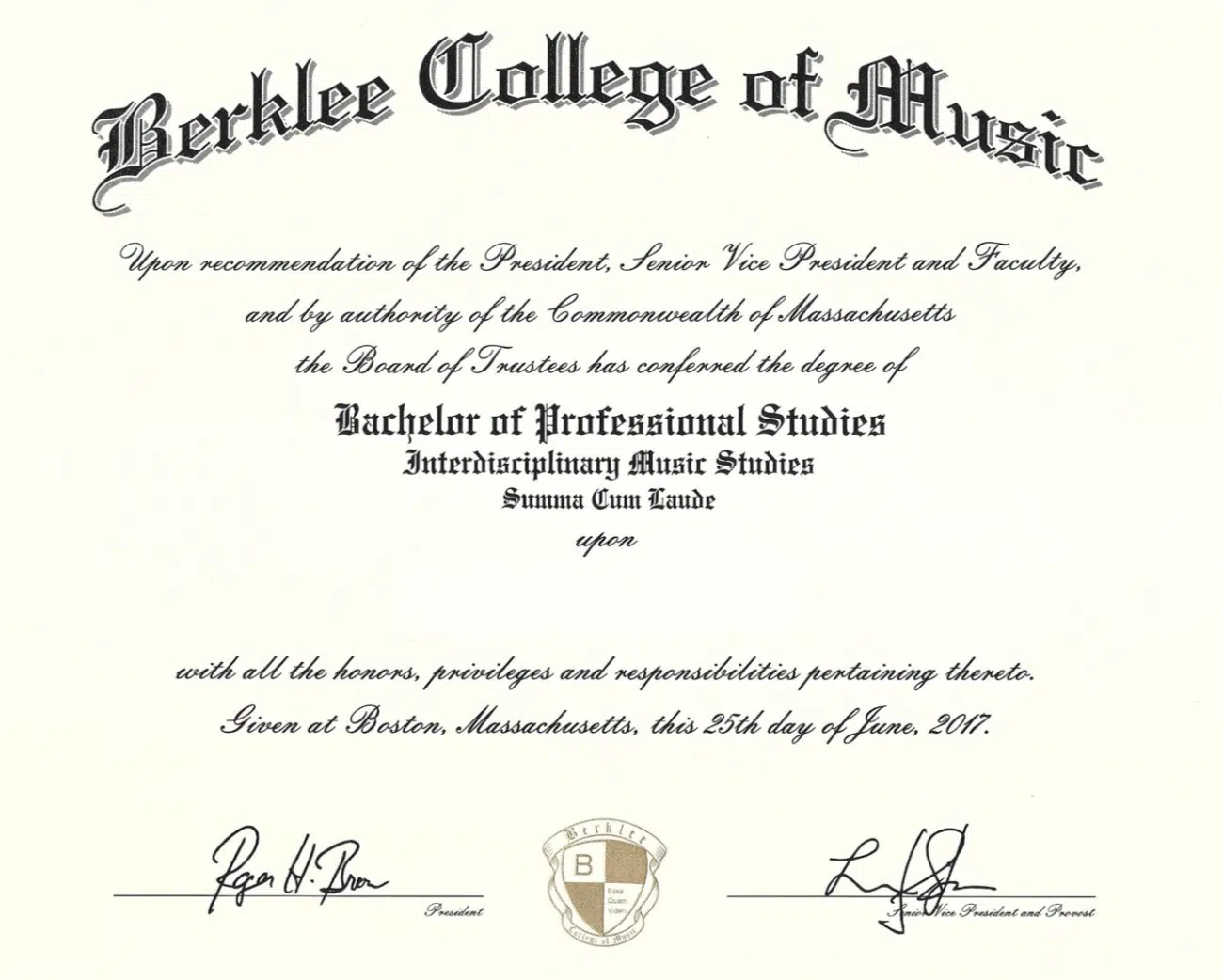
A Bachelor of Science (B.S.) in Music Production focuses on all the technical aspects that this intriguing field includes.
This program covers:
- Courses in production and engineering
- Digital audio principles
- Music technology
It breaks down the development of technical skills and how to achieve an improved music performance.
Students learn about complex digital audio systems and advanced audio production techniques 一 preparing them for technical roles in the music production industry.
An Audio Arts Bachelor, on the other hand, offers a blend of technical and creative education.
It includes courses in music theory, sound design, and music composition.
The Audio Arts Bachelor is ideal for those who want a balanced education that covers both the creative and technical sides of music production.
Key Components of a Music Production Degree
An extensive music production degree program includes several essential components that will prepare you for success and a long-lasting career in the music industry. Let’s break them down so you get a general idea.
-
Music Theory and Its Importance
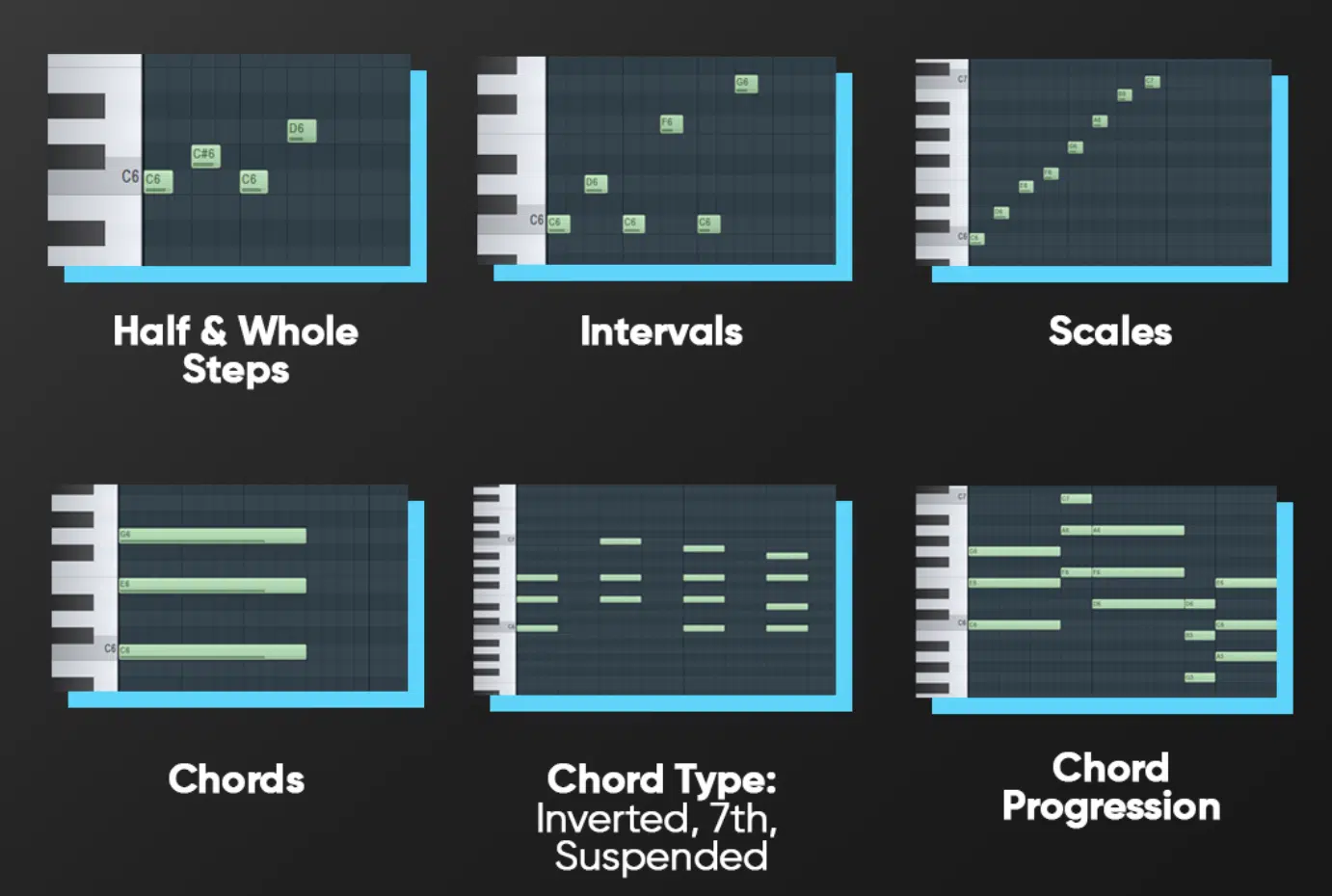
Music theory is a fundamental component of a music production degree that provides you with the knowledge needed to create and analyze music professionally.
Understanding music theory helps producers create more complex and compelling tracks, covering topics such as:
By learning music theory, you’ll know how to write and arrange music properly.
This knowledge is super important for producing music that is both pristine and engaging (to help people in the industry take you seriously).
Side note, music theory courses also teach students how to read and write musical notation, which is an essential skill for knocking out epic musical ideas.
-
Audio Engineering and Sound Design
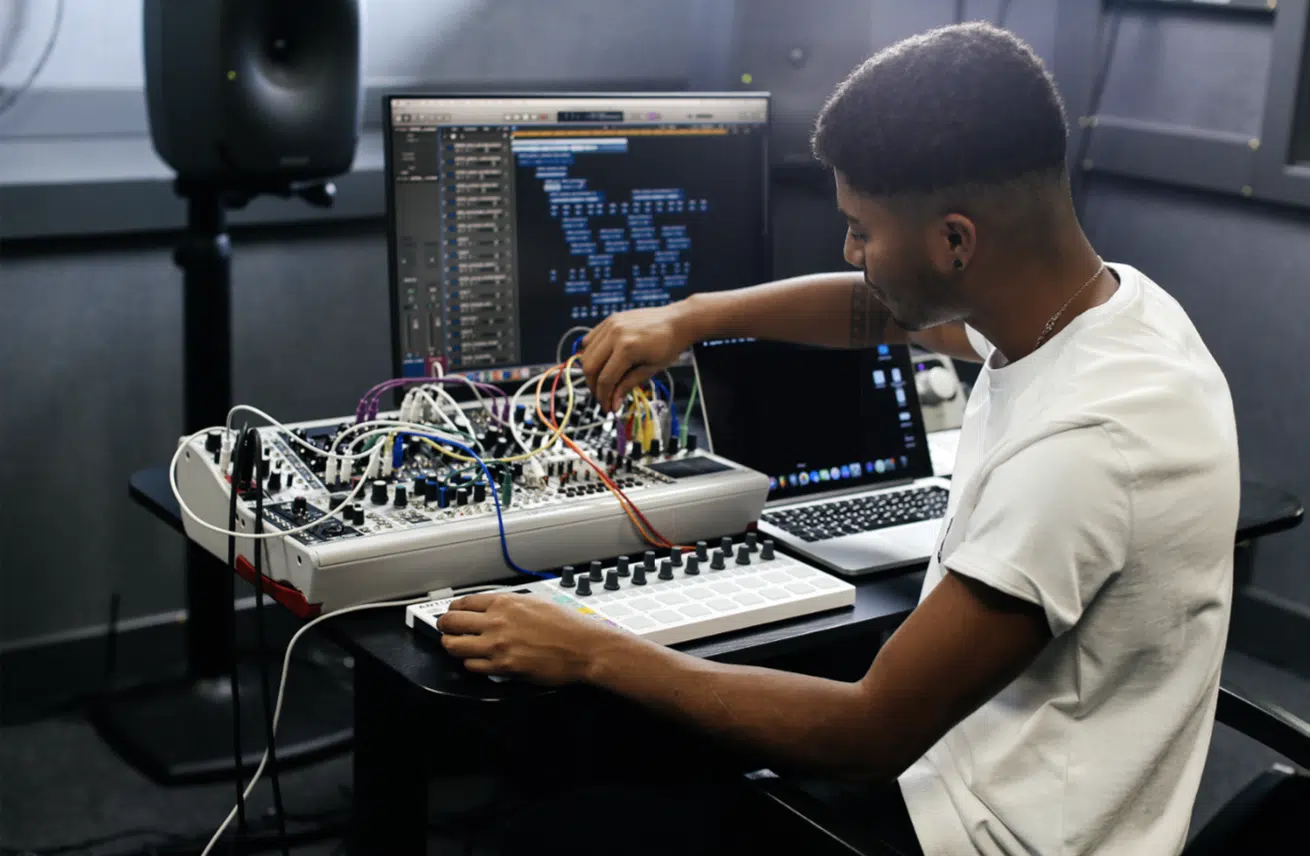
Audio engineering is another key component of a music production degree, focusing on the technical aspects of recording and producing music.
You’ll learn about the equipment and software used in audio production, with hands-on experience with tools like digital audio workstations (DAWs) and mixing consoles.
Sound design, my favorite subject, is also a main part of music production.
Courses in sound design teach students how to create and manipulate sounds for various purposes 一 including music production, film, and video games.
This includes learning techniques for creating unique sounds and effects, as well as understanding the principles of acoustics and audio processing.
Top 2 Schools for a Music Production Degree
Choosing the right music production school is make-or-break, of course, and can make the difference between a waste of time and a successful career. Here are two of the top schools known for their unparalleled music production programs.
Berklee College of Music
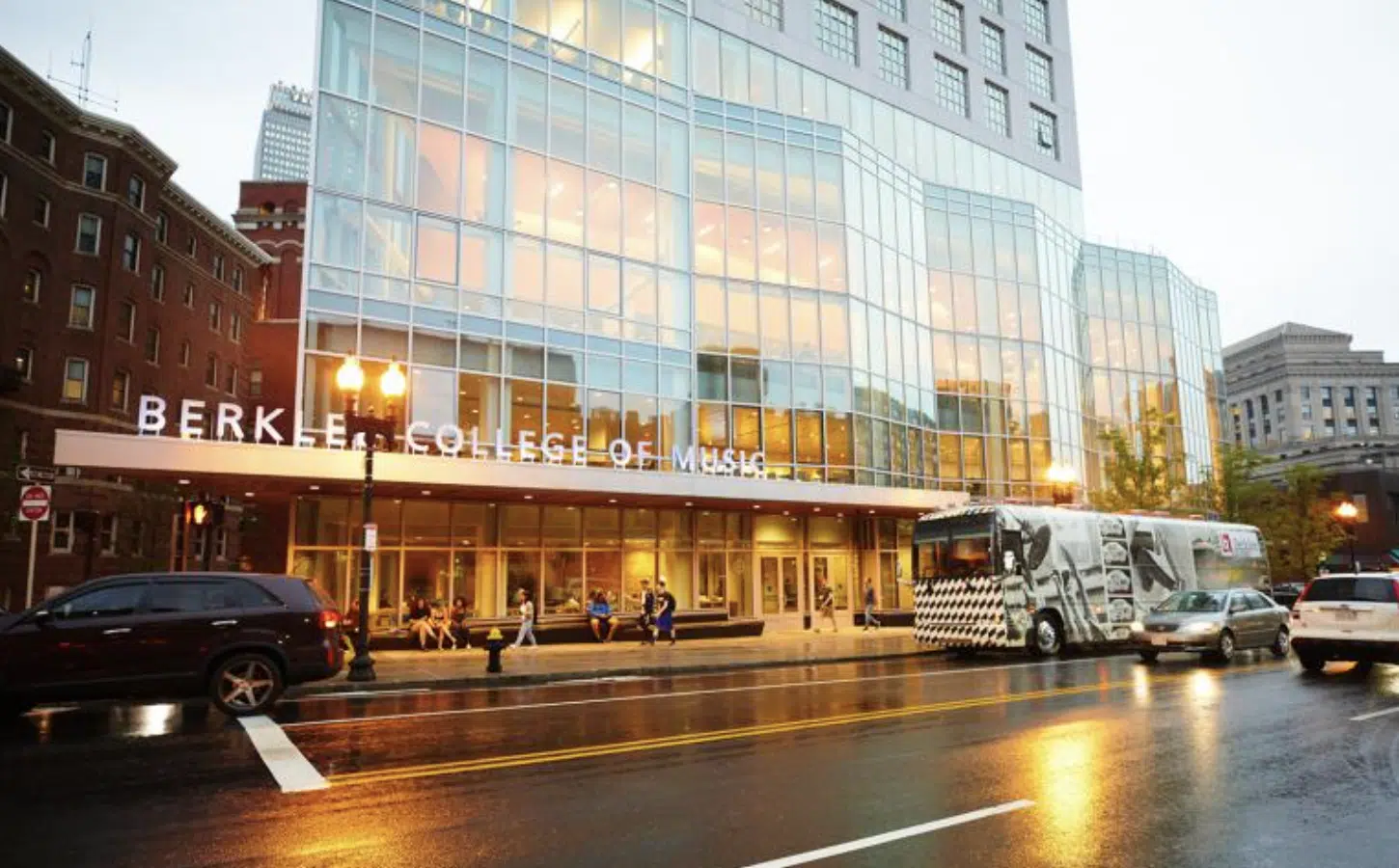
Berklee College of Music, located in Boston, is renowned for its world-class music production programs.
Their Bachelor of Science in Music Production and Engineering is designed to provide students with a thorough and comprehensive understanding of the music production industry.
The coursework ranges from music theory and audio engineering to music technology, ensuring students gain both creative and technical skills.
At Berklee, students have access to state-of-the-art recording studios equipped with industry-standard equipment, including:
- SSL and Neve consoles
- Pro Tools
- A wide range of outboard gear
The curriculum emphasizes hands-on experience, with projects that mirror real-world production scenarios.
Also, Berklee’s faculty comprises seasoned professionals who bring their industry expertise into the classroom.
So, you’ll get invaluable insights into the music production process/complex procedures from the top dogs themselves, which is invaluable.
-
Pro Tip
Networking is a key advantage at Berklee.
The college’s extensive alumni network includes successful music producers, recording engineers, and industry leaders.
Students benefit from mentorship opportunities and connections that can lead to internships and job placements.
Berklee also offers career services to help students navigate the music industry, providing guidance on resume building, job searching, and interview preparation.
Full Sail University
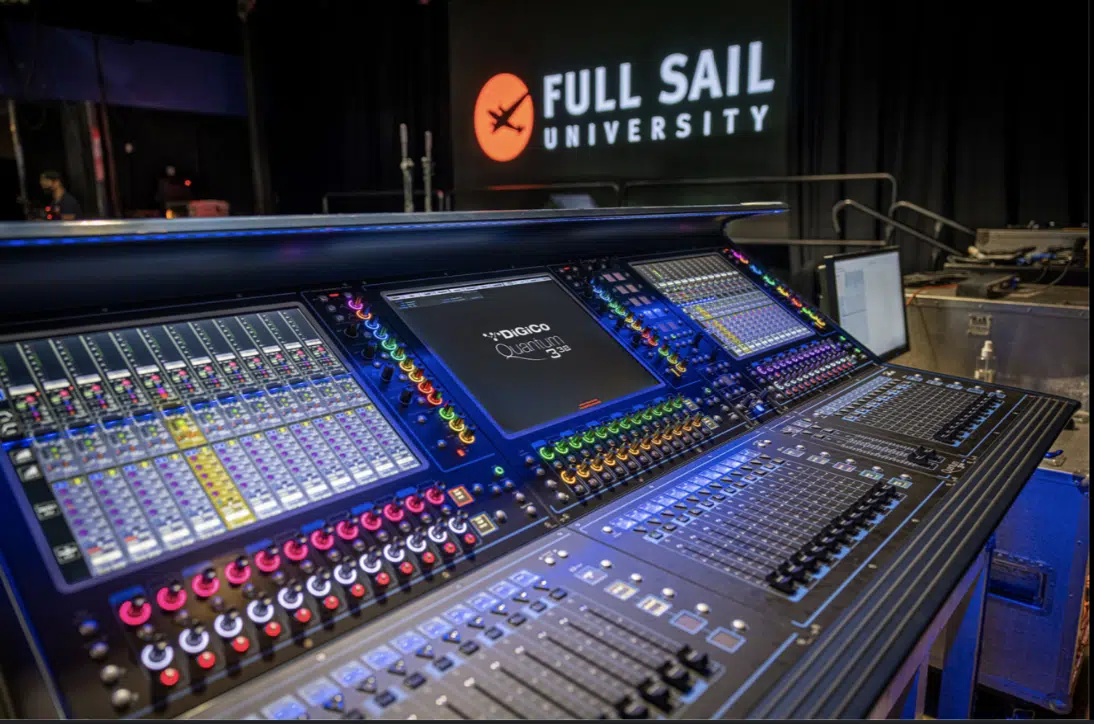
Full Sail University in Winter Park, Florida, offers a highly regarded Bachelor of Science in Audio Production.
This program focuses on the technical and creative aspects of music production, covering topics such as:
- Sound design
- Music theory
- Advanced audio production techniques
Full Sail’s curriculum is designed to provide a comprehensive education 一 blending theoretical knowledge with practical application for success.
Full Sail University boasts cutting-edge facilities, including multiple recording studios, live sound stages, and post-production suites.
Students use industry-standard software such as Ableton Live, Logic Pro, and Avid Pro Tools, so you’ll be versatile in the top programs.
It also includes courses in digital audio principles, complex digital audio systems, and multitrack recording.
This will help you be well-versed in all the various aspects of music production.
-
Pro Tip
One of Full Sail’s unique features is its emphasis on real-world experience, offering numerous internship opportunities.
They partner with top studios, production companies, and record labels, so the potential gigs are endless.
These internships provide students with hands-on experience and professional connections 一 enhancing their resumes and job prospects.
Full Sail’s career development services further support students by offering job search assistance, resume reviews, and networking events.
Coursework and Curriculum
The coursework and curriculum in a music production degree program are designed to help you master all things music production. Let’s dive in so you can get a better understanding of how it works.
-
Courses in Music Technology and Audio Engineering
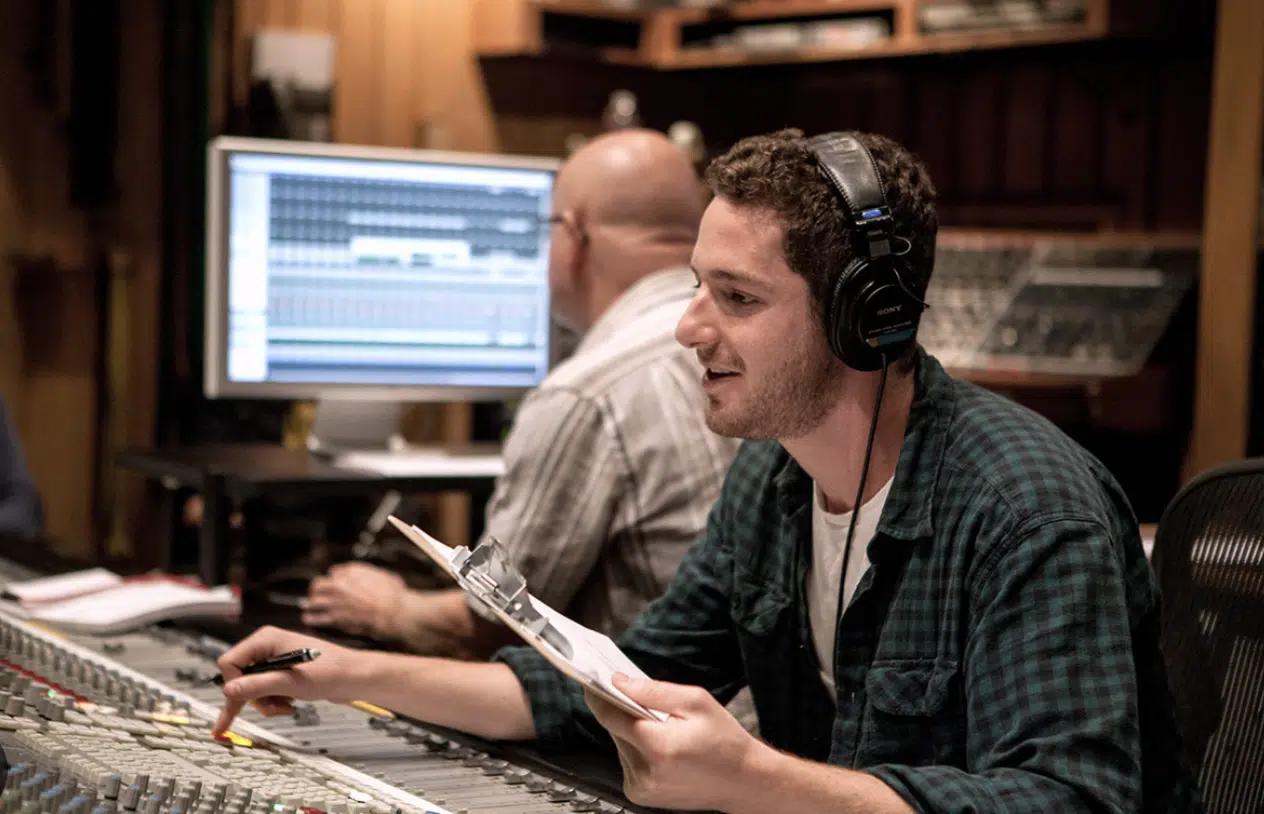
Courses in music technology and audio engineering are fundamental to a music production degree.
These courses cover topics such as:
- Digital audio principles
- Complex digital audio systems
- The use of your favorite digital audio workstation
You’ll learn how to operate and troubleshoot various audio equipment that you’ll undoubtedly need to know for long-lasting success.
In addition to technical training, these courses often include hands-on projects that allow students to apply their knowledge in real-life situations.
This experience is indepensible for developing the production skills needed to work in the music production industry.
By the end of the program, you’ll have a thorough understanding of audio engineering and music technology, preparing you for any role you’re shooting for.
-
Advanced Audio Production Techniques
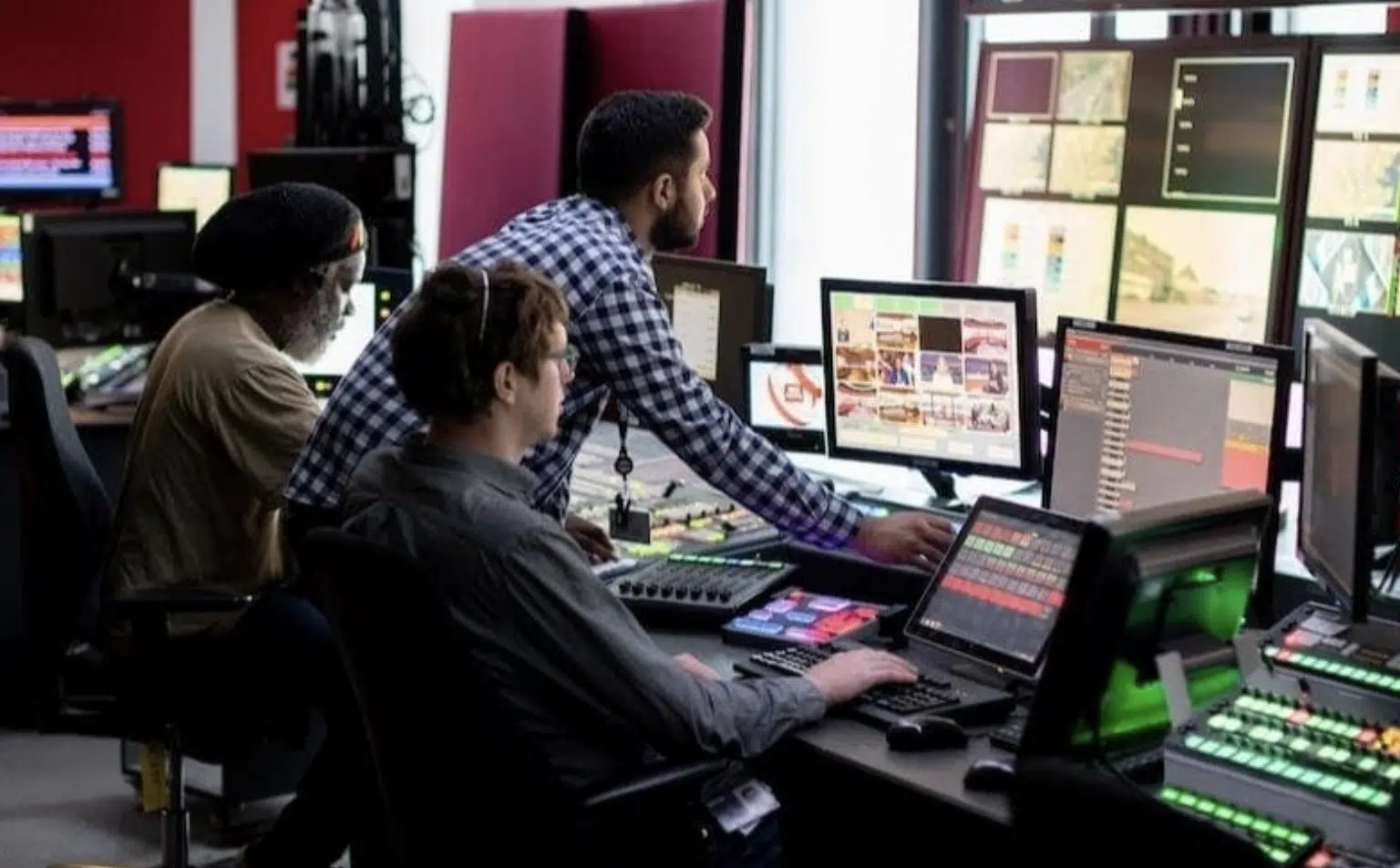
Advanced audio production techniques are another important part of the curriculum.
These courses teach students how to produce high-quality recordings, mix music, and master tracks.
Topics include:
- Advanced recording techniques
- Multitrack recording
- The use of digital workstation technology for mixing and mastering
- Etc.
Students also learn about the creative process involved in producing music, from initial composition to final mastering.
This includes understanding the mind-blowing aspects of sound design and how to create unique sounds and effects.
By mastering these advanced techniques, students are well-prepared to work as professional music producers, recording engineers, mix engineer/mastering engineer, and sound designers.
-
Pro Tip: Internship Opportunities in the Music Industry
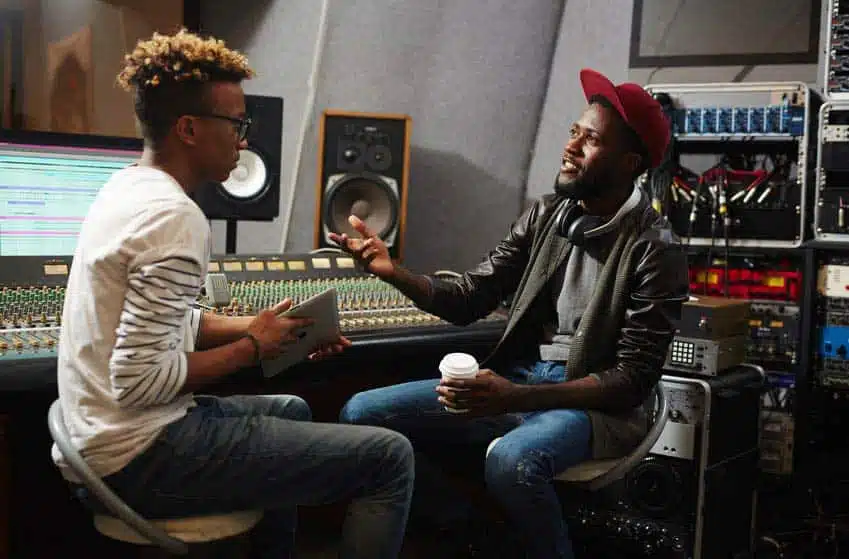
Internship opportunities are an awesome part of a music production degree program that provides you with real-world experience.
It lets you apply your newly learned skills in professional settings.
Many music production programs (even undergraduate programs) have partnerships with top resources with access to internships, like:
- Top studios
- Record labels
- Other industry organizations
These internships help students build their resumes and make valuable connections in the music industry.
They also provide hands-on experience with the most expensive equipment and techniques to enhance your skills even further.
NOTE: Taking advantage of internship opportunities can significantly boost a student’s chances of finding employment after graduation.
Financial Aid and Scholarships

Financial aid and scholarships are available to help students like yourself afford the cost of a music production degree (which can be pretty hefty sometimes)
Many schools offer scholarships specifically for music production students, based on:
- Academic achievement
- Talent
- Financial need
Applying for these scholarships can significantly reduce the cost of education.
In addition to scholarships, you can apply for financial aid through federal and state programs, like grants, loans, and work-study programs.
You can get creative and really find those loop holes based on your situation.
Understanding the options available and applying early can help students manage the cost of their education and focus on their studies.
-
Bonus: Pro Tips for Success
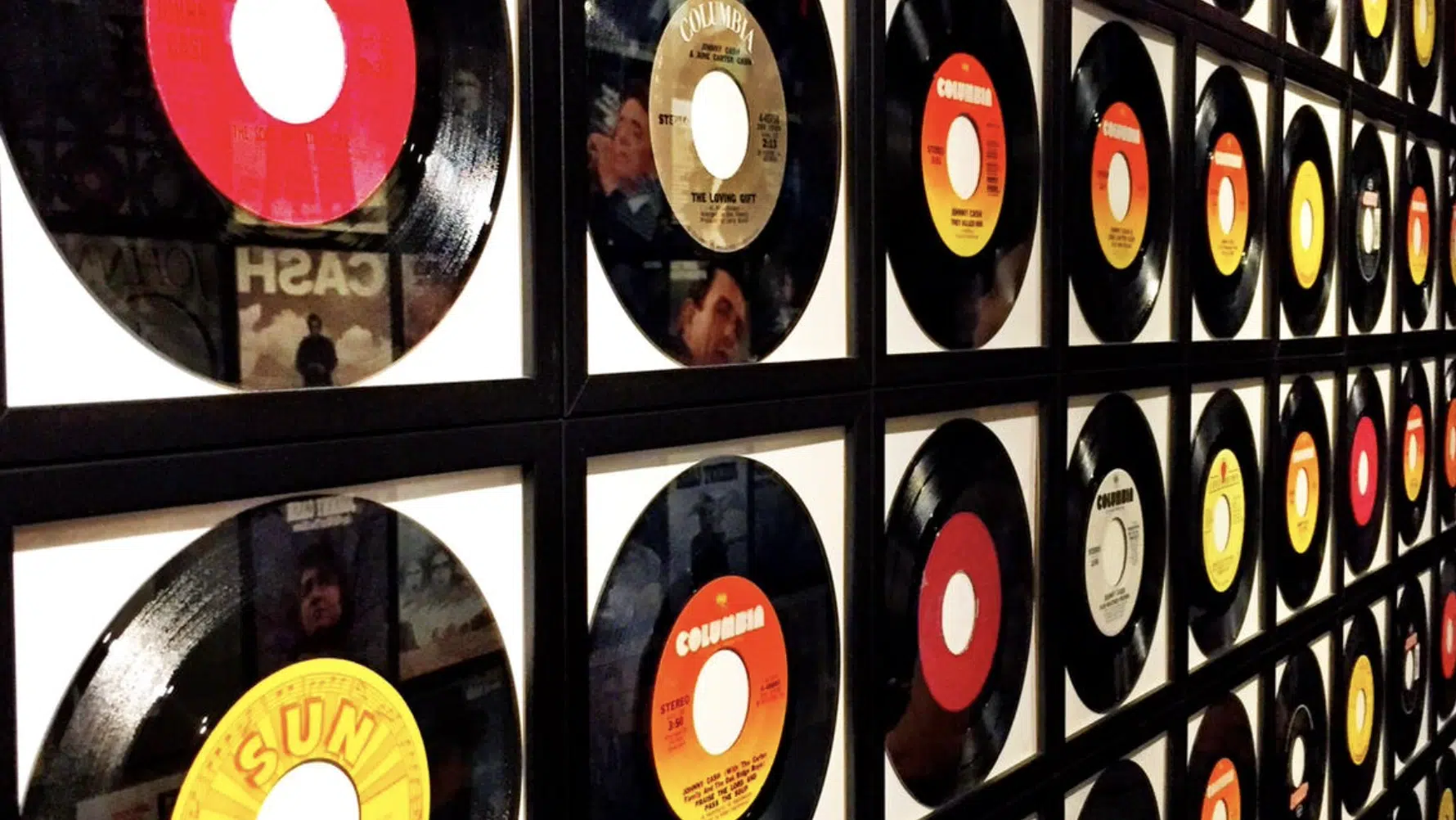
To succeed in a music production degree program, it’s important to stay organized and be proactive, all day, every day.
Keeping track of assignments, deadlines, and projects can help manage the workload and successful completion.
Otherwise, you could get overwhelmed and start falling behind.
Additionally, taking advantage of networking opportunities, such as joining student organizations and attending industry events are super beneficial.
They can provide valuable connections and insights you otherwise wouldn’t have.
Another tip is to seek out additional learning resources, such as online courses, workshops, and tutorials.
Staying updated on the latest trends and technologies in music production can give students a competitive edge.
Finally, practicing regularly and experimenting with different techniques can help refine skills and foster creativity.
Music Production Degree: Final Thoughts
Getting a music production degree is a valuable investment in your future as a music producer.
It can help you gain the technical expertise and creative skills needed to excel in the music production industry.
Plus, you’ll be able to network with industry professionals, gain hands-on experience, and enhance your career prospects.
To support your journey towards becoming a full-time music producer, you’ve got to check out the #1 Music Production Affiliate Program out there.
It’s a great way to earn a reliable extra income while doing what you love, helping you fund your education and career in music production.
This, as you know, can be extremely beneficial, especially if your’re first starting out.
So, go follow your passions, pursue your dreams, and go get your music production degree (if that’s the right path for you).
Until next time…






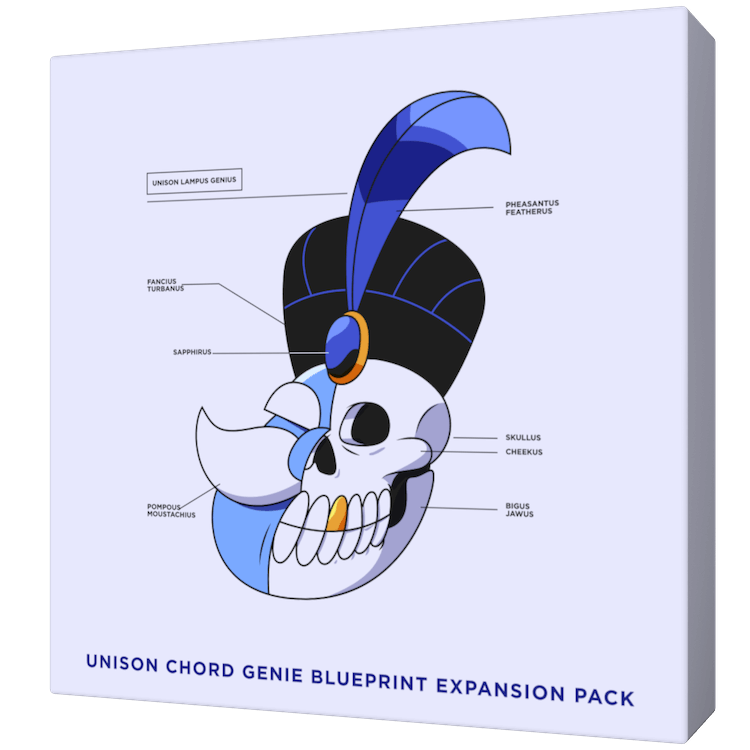
Leave a Reply
You must belogged in to post a comment.